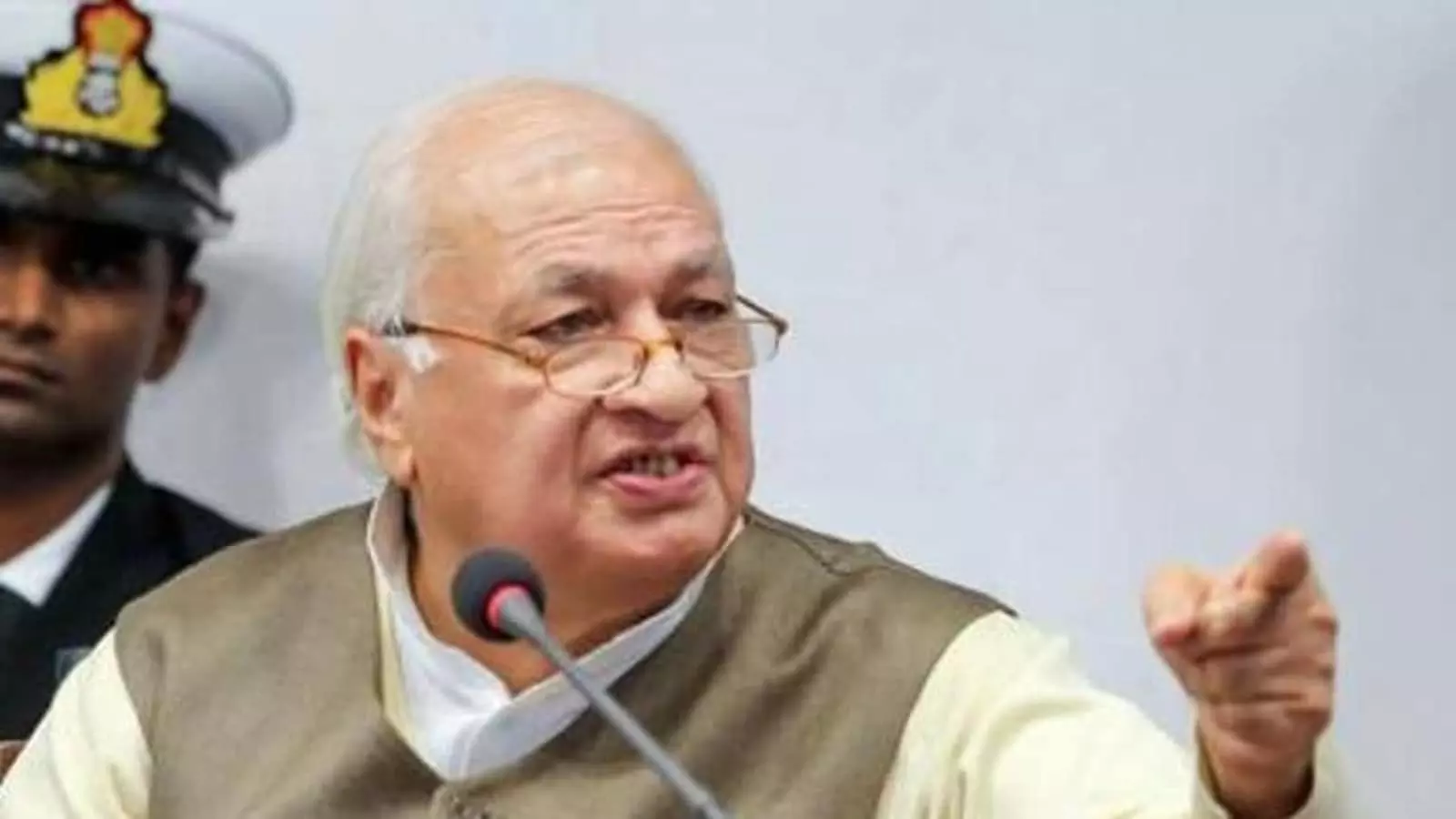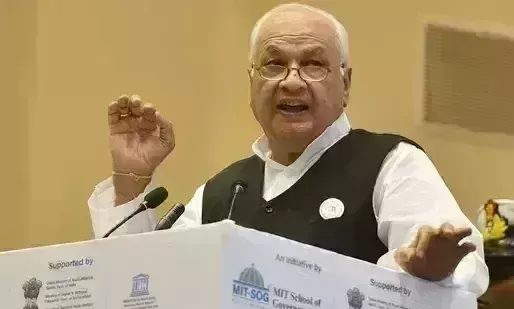
Kerala Governor should not cross redlines
text_fieldsThe post of state governors is laid down in Article 153 of Indian Constitution. That role is to the state what the President's title is to the Centre. However, the President has to perform several tasks as the guardian of the Constitution and to maintain the balance of different constitutional mechanisms of the nation. At the same time, the post of governors in practice has mostly been used in the country to rehabilitate the retirees from active politics and to accommodate those who cross floors to the ruling dispensation. In a way, Raj Bhavans also have come to be dubbed as old age homes. Many experts have already raised the demand that the very system of governors has to be ended. It was Tamil Nadu chief minister MK Stalin who commented recently that the governor's title is like a goat's beard which is not required.
The governor is not the head of the government, which responsibility belongs to the chief ministers. The governor's responsibility is only to ensure that the legislation and governance in the state are conducted in accordance with the Constitution. But he should not interfere with the policy formation and administration of the state. However, what is seen happening now is that in states ruled by non-BJP parties, intrusive and extensive interference is being made using governors. In Tamil Nadu and West Bengal, the friction between governor and the elected governments has become routine. Earlier, this confrontation had gone out of hand in Puducherry and Delhi. All of such confrontations were caused by the attempts of governors to impose the will and priorities of the ruling party at the Centre through roundabout ways. This approach flies in the face of our federal principles, and will take matters to major conflicts between the Centre and states.
It was in 2019 that Arif Mohammad Khan took charge as Governor of Kerala. After his terms in parties of Bharatiya Kranti Dal, Indian National Congress, Janata Dal and the BSP, he joined the BJP. Since assuming the role of governor, on several occasions he has been arguing in Kerala the BJP central government's case on issues including the Citizenship Amendment Act. And most often he was noticeably behaving like a politician forgetting the dignity and constraints of the position he is holding. And that is now moving ahead breaking all boundaries. Khan is one who had quit the Rajiv Gandhi cabinet in protest against that government's passing of the Muslim Women (Protection of Rights on Divorce) Act in 1986. Rajiv had brought in that piece of legislation to undo the implication of the Supreme Court verdict in the Shah Banoo case which would force a divorced Muslim wife to be permanently at the mercy of her former husband - a decree deemed anti-women in many respects. The unusual situation that arose from that judgment - which would degrade Muslim women - was its being welcomed by the Hindutva camp, the left and upper caste feminists. Ever since then, Khan has adopted a stance placating the Hindutva mainstream of India in all issues related to Muslims. His stand publicly expressed in recent days regarding the hijab issue also falls in this category.
In Karnataka, the government and the sangh parivar are jointly putting Muslim women to shame. Female students wearing a headscarf are being blocked on their way to the class by teachers and made to remove it. It was this spectacle, that would sadden anyone with a conscience, that led to the Karnataka hijab issue being debated at an international level. It is on such an issue that a person occupying a governor's post, is rushing in to take sides and pronounce remarks in public. That a governor is becoming party to blaming and hurting a community and publicly insulting a symbol which a community holds sacred, is more grave than interfering with administration to fulfil the Central government's wishes. It amounts to crossing the redlines and is uncalled for from one sitting in the Governor's chair. As for the Karnataka government and sangh parivar, they are in an attempt to instigate trouble and make political capital out of it. But as for Kerala, the state in the least expects from the Governor a minimum courtesy of not justifying such debasements that overturn the very principles of our Constitution.



























